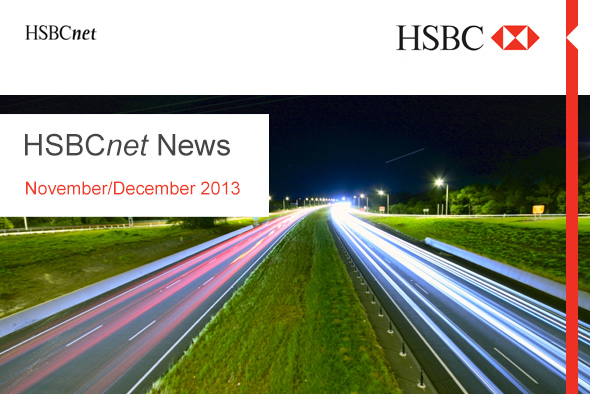Customers with accounts in the Eurozone: requirements for SEPA End Date Regulation
Passed in March 2012, European Union Regulation No. 260/2012, also referred to as the SEPA End Date Regulation (EDR), established the mandatory deadline by which legacy Euro ACH transactions within the Eurozone must be migrated to SEPA schemes. This date is 1 February, 2014.
This means that domestic and cross-border Euro transactions where both the Payer’s and the Beneficiary’s bank accounts are located within the Eurozone will have to be SEPA compliant by this date. However, please note that:
- some countries from where you currently effect Euro transactions (payments and/or direct debits, niche products) may have chosen to waive some requirements until the 1 February, 2016;
- for non-Eurozone SEPA member countries, Euro transactions will have to be SEPA compliant by 31 October 2016.
To learn more about SEPA key changes and how HSBC can help, you are encouraged to review our SEPA Migration Guide.
HSBCnet enhancements for SEPA integration
To enable you to fully capitalise on the benefits presented by SEPA, in the upcoming months before February 2014, the following changes will be implemented to facilitate SEPA-compliant transactions through HSBCnet.
 For customers using HSBCnet on-screen input for ACH payments: For customers using HSBCnet on-screen input for ACH payments:
From 1 December 2013, customers who have been inputting Euro ACH payments through HSBCnet screens will be automatically entitled to the HSBCnet Eurozone payment screen. This screen enables SEPA Credit Transfers (SCTs) if instructions are created with the beneficiary BIC / IBAN details. Additionally, legacy payment templates previously saved for repeated ACH transactions will be automatically converted in January, 2014 in readiness for your use in the Eurozone screen. Please make sure you check the beneficiary details are correct before using the new templates and ensure you pay special attention to the relevant information such as the BIC and IBAN.
 For customers using HSBCnet on-screen input for ACH direct debits: For customers using HSBCnet on-screen input for ACH direct debits:
Due to the additional data requirements and new obligations introduced by SEPA to Direct Debit Creditors, all SEPA Direct Debit (SDD) transactions through HSBC can only be initiated using ISO 20022 XML files. The existing HSBCnet Euro ACH direct debit in country screens will be available until 1 February 2014 and demised after the end date. If you currently input direct debits manually through these screens and wish to collect SDDs going forward, you will need to migrate to XML file submission via HSBCnet File Upload service or other host-to-host channels.
 For file-based customers using HSBCnet File Upload services: For file-based customers using HSBCnet File Upload services:
As outlined earlier, ISO 20022 XML will replace the domestic Euro ACH formats of most of the Eurozone countries and become the only permitted file format after 1 February 2014 (subject to country ‘derogation’). Therefore, payment instruction files in local ACH formats will not be accepted after the end date. To make a SEPA payment or collection, you may need to submit XML files and ensure the necessary information such as counterparty BICs / IBANs are included.
For further assistance
You may have already been contacted regarding the above changes, however; if not, or if you have additional questions please don’t hesitate to speak with your HSBC representative. Furthermore, if you are not in a position to move to XML, have questions concerning your current formats, or need guidance to plan your XML readiness, our SEPA migration experts are more than happy to provide support. You can reach experts for your location directly by visiting http://www.hsbcnet.com/sepa.
|
